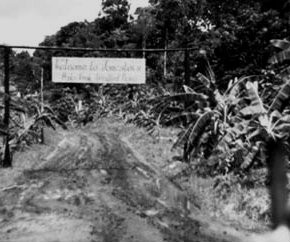Disciples like me

I was denominationally adrift in college. I attended Christmas and Easter services at my parents’ United Methodist church, flirted with Unitarianism, worshiped in silence with Quakers, and worked for two years as a youth minister for the local Episcopal church.
When it was time to fill out my seminary applications, I realized that I had to check a denominational box—and none of the traditions I’d been hanging around in felt quite like home. The pastor who directed the ecumenical campus ministry was ordained by the Christian Church (Disciples of Christ). She was always careful not to push her denominational loyalties on students—what better way to drive away local ecumenical support!—but knowing my conundrum, she invited me to her church.
I loved it. The more I learned about the Disciples, the more I felt certain that this was the denomination to which I could commit.
And then the inevitable happened: I found the skeleton in the Disciples’ closet. Or rather, I found that the Disciples’ closet could never conceal the unfathomable number of skeletons that were the victims of a deranged Disciple pastor. The story is well known; on November 18, 1978, hundreds of people drank poisoned Kool-Aid and died. Every last one was a member of the Peoples Temple—a Disciples congregation.
I was suddenly incredibly leery of the church I was about to join, but my campus pastor assured me of the obvious: the horrors of Jonestown were a profound deviation from everything the denomination stood for. I transferred my membership to the tiny rural church she served, and I entered seminary as a brand-new Disciple.
Most Disciples would prefer to forget that Jim Jones was affiliated with the church. I have found that I cannot. I wrote a seminary paper on Jonestown, and I revisited the same topic in the now-defunct DisciplesWorld magazine’s special issue commemorating the 30th anniversary of the atrocities.
I’ve argued that it is crucial for Disciples to understand the ways our polity complicated the situation. By the time the Peoples Temple moved from California to Guyana, it had beome clear to the larger church that the once lauded Jones was unfit for ministry—and a process was underway to remove his standing. But like many non-hierarchical traditions, Disciples have no way to force a pastor to leave a church. Even if the regional adjudicatory had engaged in a more aggressive campaign against Jones, his church—his cult—likely would have simply proceeded as a non-denominational church.
The FBI knew Jones was dangerous and did not succeed in stopping him. The most the church could have done is ensure that the pastor and his victims were merely former Disciples of Christ—a truly meaningless exercise in semantics in the face of the second largest loss of American civilians in history.
Still, I have come to the conclusion that Disciples have a unique responsibility to remember Jonestown and honor the people who died there. They are people who desperately need a modicum of honor.
Most of the members of the Peoples Temple were economically disadvantaged African Americans. Their lack of hope and opportunity left them deeply vulnerable to a charismatic leader. Willingly or not—there were so many children in Jonestown—they were victims of a mad man, stripped of their autonomy and dignity and ultimately robbed of their lives. And then, in their deaths, they were all but abandoned. The American people were understandably appalled. The Disciples were quick to explain that those people weren’t really Disciples. Less than half the bodies were claimed and buried by their families; the majority ended up unceremoniously buried in a mass grave in California.
In the years since, the murder weapon in this extraordinary tragedy has become a punchline. “Don’t drink the Kool-Aid!” people say again and again, with little thought to the phrase’s origin. It’s hard to imagine people ever so callously making light of the events of September 11, 2001.
The members of the Peoples Temple Christian Church were Disciples, even if they had been led astray beyond recognition. They died before I was born, in circumstances none of us will ever understand. But they were my brothers and sisters. This and every November, I honor their memory.





